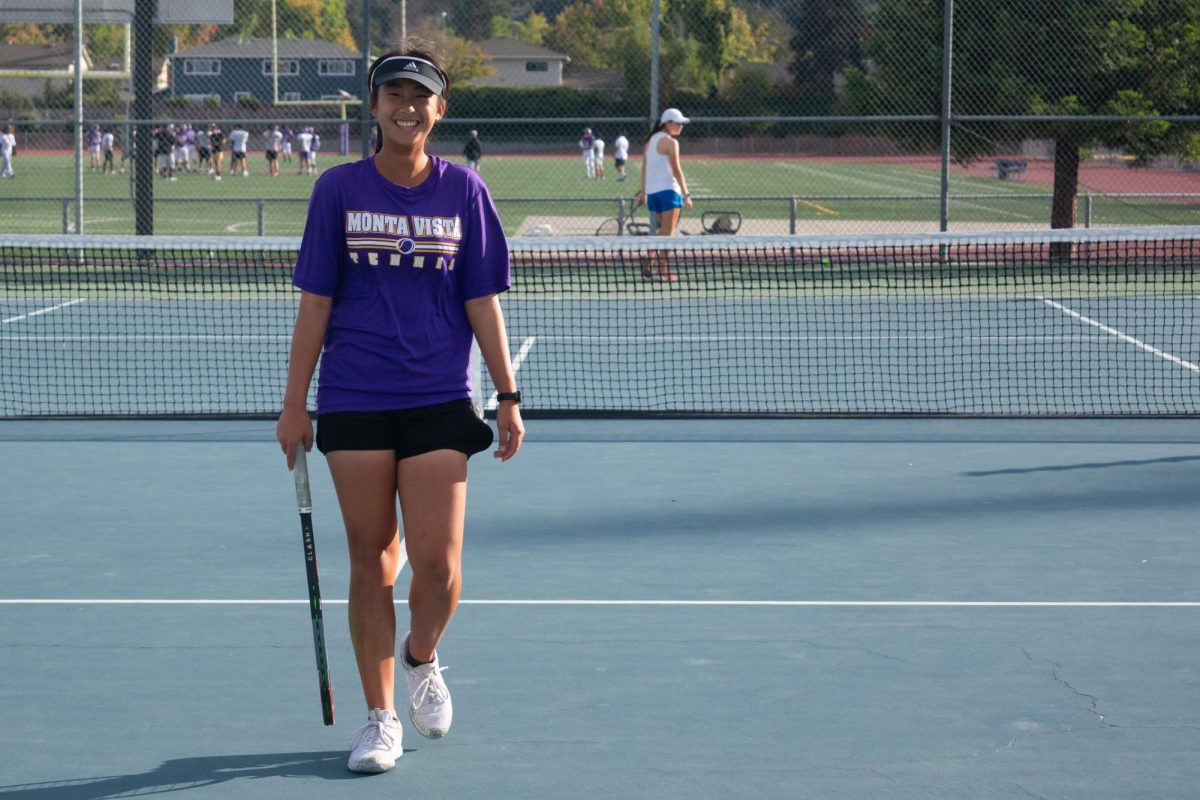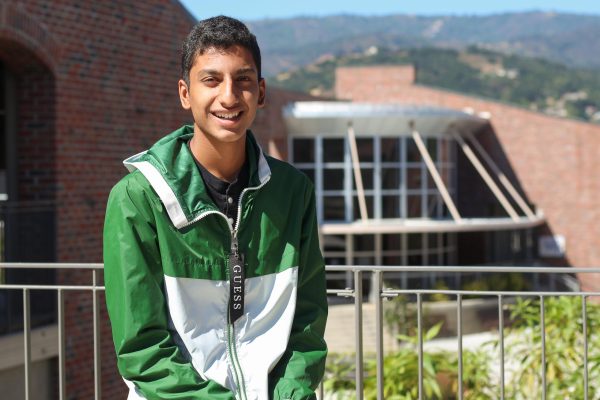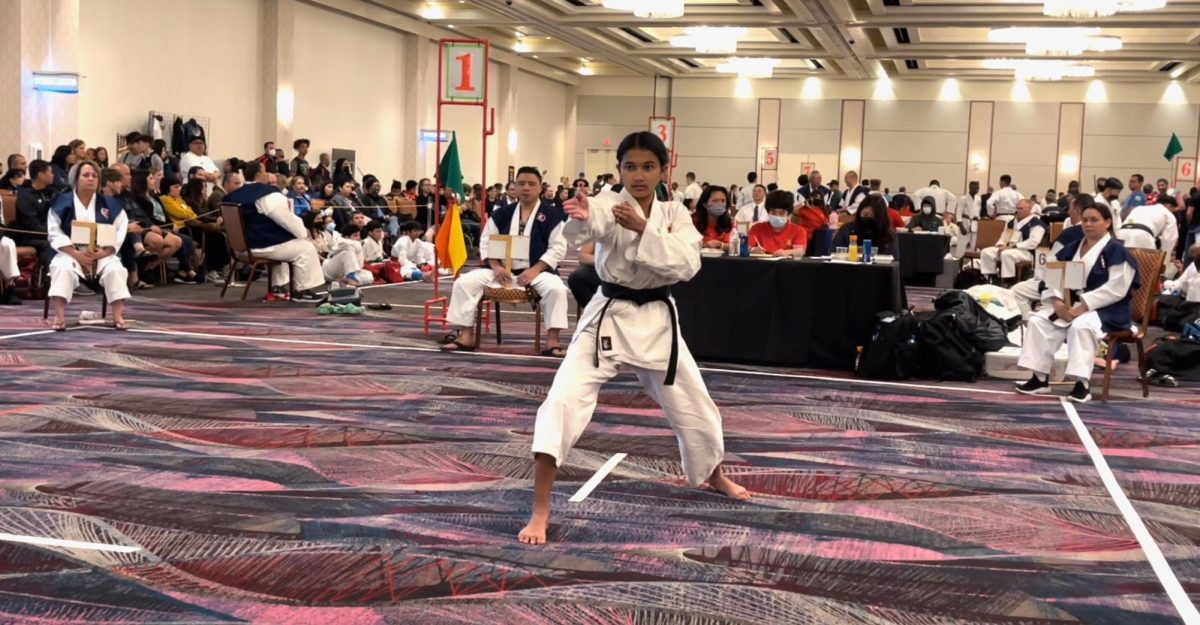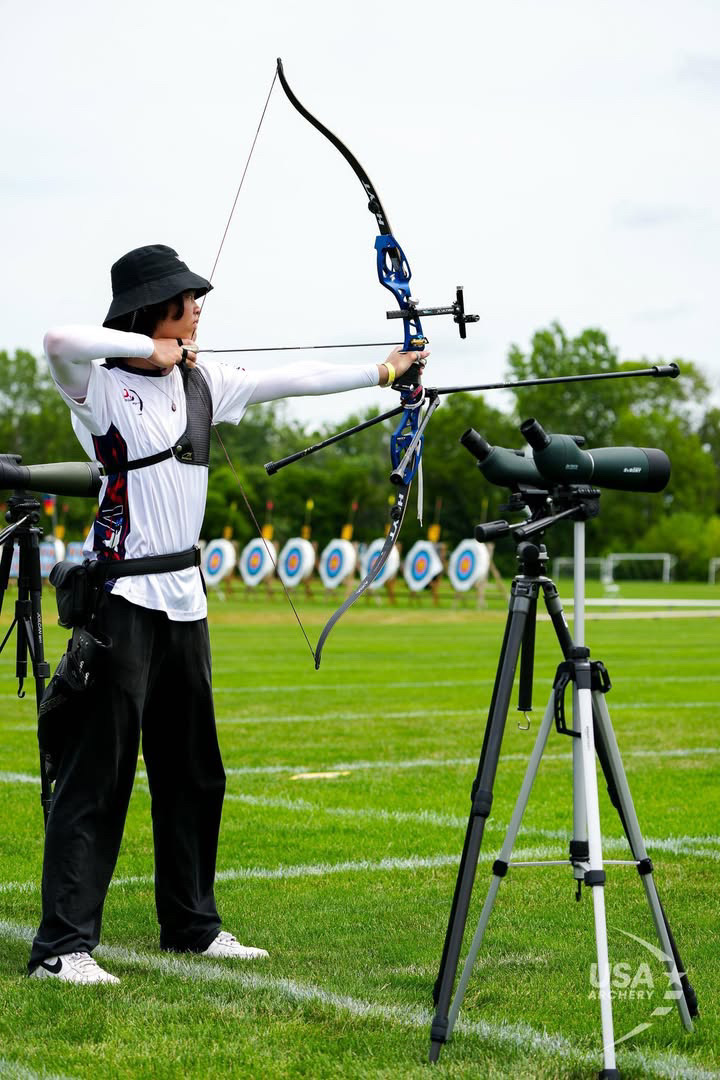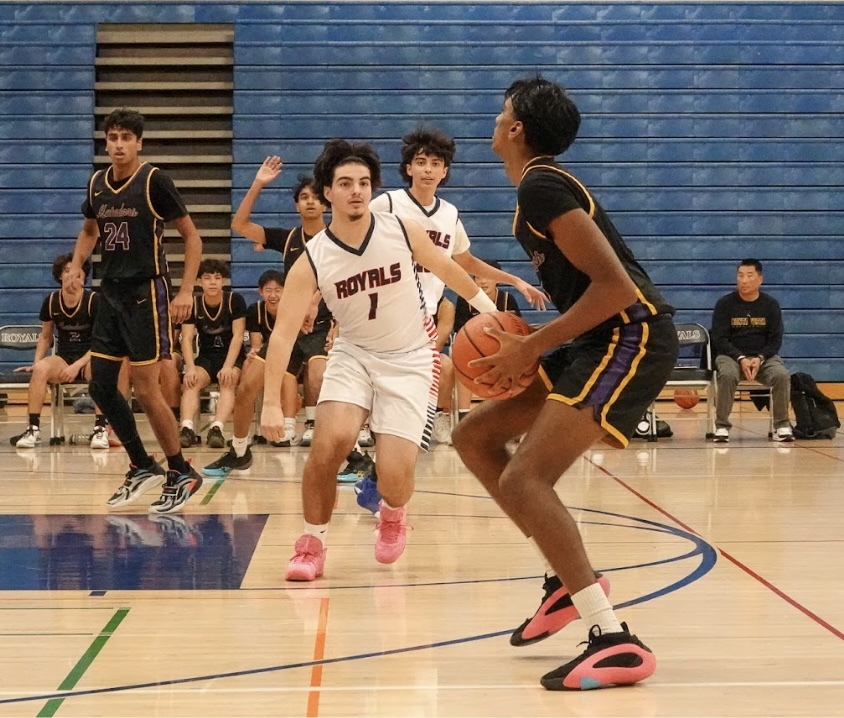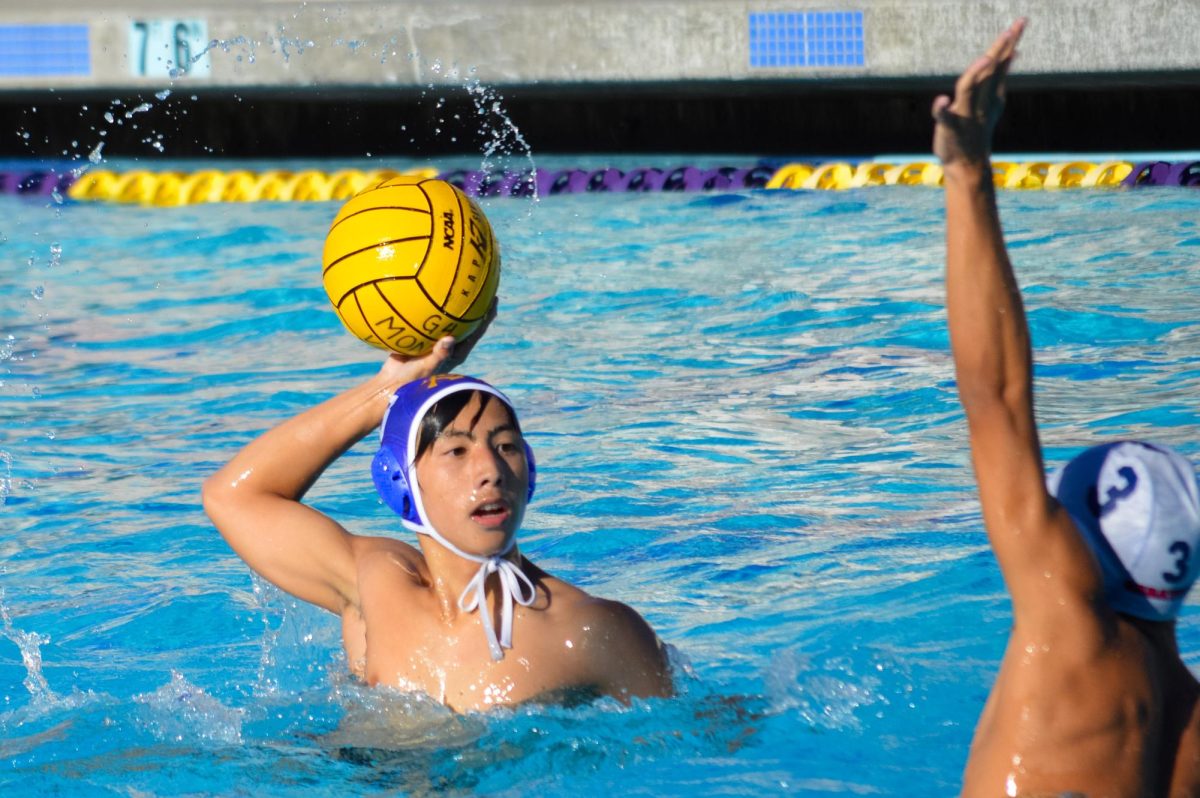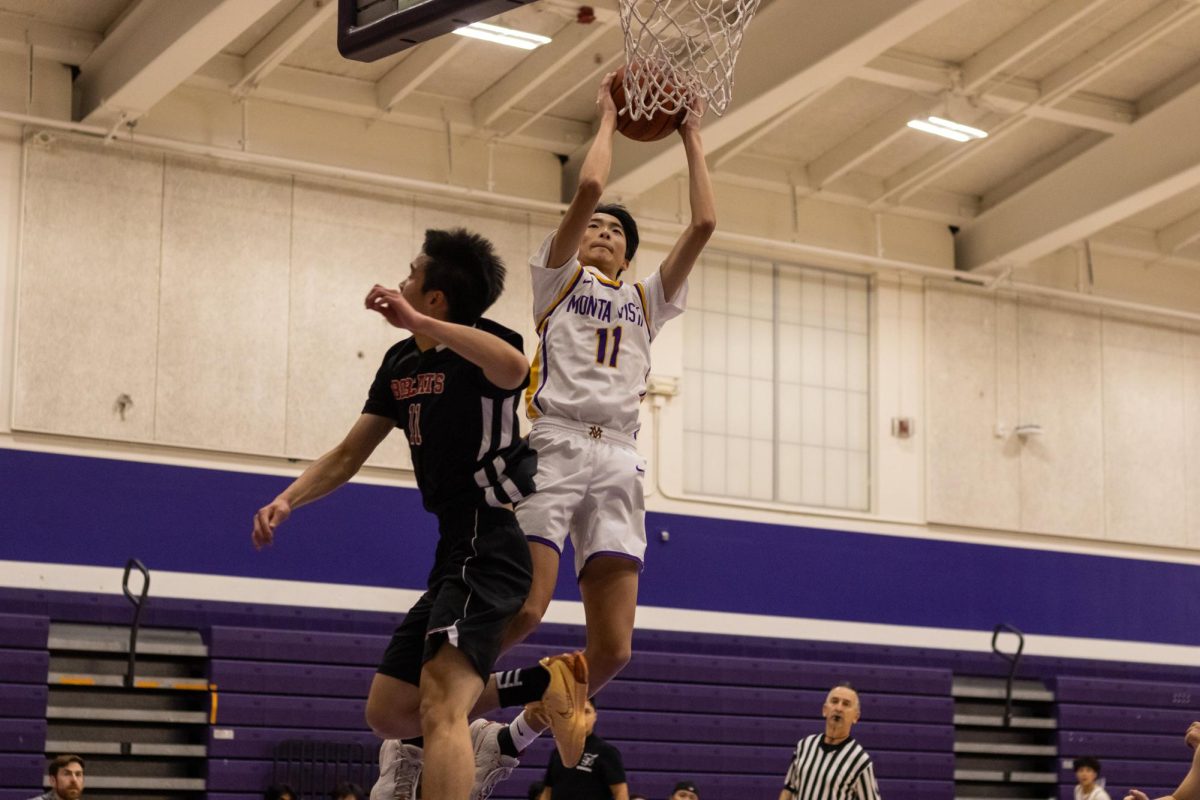AS: Hello everyone, my name is Aaryan and welcome to Episode 25 of Time Out! Each episode we will be diving into the sports scene here at Monta Vista High School and explore the journey of athletes from various sports. In this episode, I’m joined by sophomore Jillian Yang who plays tennis on the girls Varsity Tennis team. Let’s get started.
AS: Why did you first start playing the sport?
JY: I actually first started since my sister played tennis.
AS: Did someone else motivate you to join or did you begin by yourself?
JY: My sister, my family friends and my parents.
AS: And do you mostly play doubles or singles?
JY: School, I mostly play doubles. But, outside I usually play singles.
AS: Is one a bigger part of your tennis career?
JY: In terms of getting into a college it’s most definitely singles right now for me. Doubles I feel like is not as competitive. Like, most people don’t believe so.
AS: And how often do you practice?
JY: Usually it’s every day for two hours. And then once a week I have a private lesson which is one hour.
AS: How does this time commitment affect other aspects of your life?
JY: It definitely affects my other extracurricular activities, my school, workload wise. So usually at school, I come home. I usually have some sort of time to prepare, maybe do some homework, and then I’ll have my two hour practice. I’ll come home usually around dinner time, so it’s like 6:30-ish, 7-ish. And then I just have homework time. Sometimes I do have class. They’ll take up like one to two hours.
AS: Could you also explain your private lesson on the weekends, just how that runs?
JY: That’s actually not on the weekends. Because I have tournaments on the weekends. So I usually have my private lessons on Mondays from 9 to 10 p.m. just because it’s just a much easier time compared to other days.
AS: What are your favorite things to do in tennis?
JY: Well, I actually really love serving. I really love playing doubles when I have a decent doubles partner so it’s not frustrating. It’s something you can enjoy.
AS: How do you mentally prepare yourself before tennis tournaments?
JY: I feel like it’s really easy to just lose yourself there. And just forget what tennis during the game looks like. So I just like to focus before the tournament. I’ll do a warm up which is just 30 minutes to one hour. Hopefully it’s one hour. If I can’t, it’s 30 minutes. And during that time I just focus on the basics, like getting spin, just building that up before the tournament.
AS: What do you think about during your matches?
JY: Funny enough, when I’m serving, I usually tell myself to shut up because I think too much. And my coach knows this, he’s always telling me ‘You need to think less and just go for the shot’ because if you think too much then everything slows down and just it gets really disorganized.
AS: Could you expand a little bit more about your headspace in the middle of a match?
JY: Just think less and more instinctively, rather than overthinking because we have to just go for it. If you even like one second, your entire timing just falls apart and then your game can fall apart. Also, if you think too much, it can get too much in your brain and things. You just get stuck and if you start losing then you’re like mentality just takes a dive downwards.
AS: And what are your favorite memories from tennis?
JY: Well, it’s definitely when we had the team and also when I made new friends, in tournaments. That’s really nice. I really love having this sort of team effort, and also having friends. Having these friends it’s like you have someone to share aspects of tennis that you guys can relate through. Like whether that’s losing against someone or maybe even gossiping over someone. It’s just like something that only tennis players can relate to. Just like how only teenagers can relate to teenagers.
AS: And what would you say is your biggest accomplishment?
JY: Well, we won CCS first place and then we went to NCS both years that I was on the team and became finalists.
AS: Who has been the biggest influence on you?
JY: I really want to say my coach, but also my mom as well. She’s been my biggest supporter. So she in the beginning, was just taking me to private lessons, clinics, tournaments, just overall.
AS: And are there any challenges you have faced?
JY: One of my biggest injuries was my shoulder injury that happened over the summer. So funny enough that summer I was doing volunteer work. And it was for this summer camp for little kids and I would just help out. And, I was really rusty that week, because I couldn’t get in my usual two hours of tennis. And it was summer, so usually I played more tennis. But because I wasn’t able to get in that practice, I became super rusty and vulnerable to injuries. And so the next week, my mom signed me up for this summer camp for tennis. And there’s the morning camp and then the afternoon camp, which I did both, which was not the best idea. The first one was two and a half hours. Afternoon camp was two and a half hours. So that’s five hours of tennis. After the first two days, the first three days, the second day I started actually feeling the pain. But I thought I was just sore. No, I haven’t played. Now I’m playing for one hour, super sore. And then the third day I can barely hit the ball. I’m just pushing it over. I’m not even hitting it. My coach is like, ‘What is going on?” “Like, I don’t think you hit the ball over the net at some point.”
AS: And describe your journey of overcoming your shoulder injury.
JY: It was quite a peaceful week afterwards. Surprisingly. I had to ice my shoulder and we had to get it checked up for a good week. And I get if I don’t play one, one day, I get pretty rusty. So, one week, I got extremely rusty. Meaning a lot of my built up like practices, I lost a lot of the touch I had. So, there are a lot of challenges with that and going back to tournaments, when you play different people and you don’t play for a good month for tournaments, you lose that touch as well. And I felt really nervous, especially in my first match I wouldn’t be able to actually play my full strength. I would play like, maybe 25 percent it wasn’t, wasn’t the best. But I continued to practice. I had my mom’s support. I had everyone’s support, my friends from tennis, my coaches, so that definitely made the recovery way faster.
AS: How have you grown throughout your years of playing tennis?
JY: Well, mentally I feel like I’ve definitely become stronger. It’s especially easier to face those with bad attitudes and like people who cheat or people who randomly accuse you of cheating, being a cheater. And like before I kind of struggled because I didn’t think people would just blurt it out for no reason.
AS: And, obviously you talked about getting stronger through tennis. Are there any other life lessons you have learned through playing tennis that go beyond the sport itself?
JY: There’s a lot of self discipline, like having to learn how to motivate yourself. Especially from your coaches that you should definitely listen to not just be like, ‘Oh, that’s just what he’s saying. If you want to become a professional,’ or whatever, like, it’s not really an excuse to slack off.
AS: Would you say like, you’ve applied a lot of self discipline to school?
JY: Oh, yeah, I guess. In school, I definitely have applied what I learned from tennis. There’s, I guess, struggling with maintaining the sort of relationship with tears. And then maybe friends that you don’t really get along with and like mutual friends. Maybe they’re not as close and it’s just, it’s just fine. It’s okay. That it’s like this and being able to just seek help when you need it at school. If you’re struggling with a topic just like find someone to help you with. Like after you try your best.
AS: What are your future goals for tennis, whether it’s specific or in general for your college and the rest of your career?
JY: I’m hoping I get into a D2 college. I know D1 is a really hard and far reach.
AS: And what would you say to anyone interested in starting tennis or a younger generation of tennis players? Any advice you have for them?
JY: Age doesn’t matter really. So if you’re going to start tennis, if it’s for fun, if it’s to like, turn this into a career is definitely have self discipline. Listen to what your coach says. And do like everything and do more. More is better.
AS: And that’s it for Episode 25 of Time Out. Thank you so much, Jillian Yang for joining me on this episode. I’m Aaryan Sharma and thanks for tuning in. See you next time.



